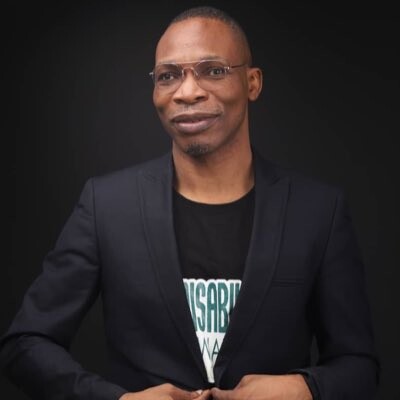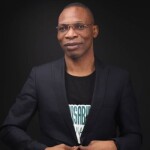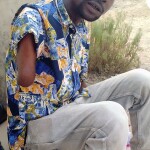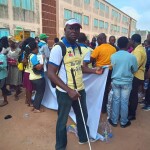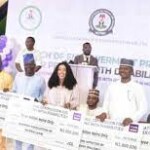Former National Association of the Blind (Lagos) chairman and UK-trained disabilities/assistive technology expert Opeolu Akinola speaks with ER on how the CBN shuts PWDs out of Fintech and financial inclusion
The CBN Sustainable Banking Principle 5 Financial Inclusion provides for naira notes marking, and so on. At what point in the Discrimination Act and the other policies do PWDs perceive financial exclusion?
Those notes are not accessible. Can those who are not blind even feel the embossment? And it’s not only about embossing notes. I was in the UK for my masters, and I can give you direct comparison between what they have done with the embossed notes over there and those in Nigeria. Over there, they didn’t stop at embossing notes; they also made them of different sizes. It’s not only blind people that have currency problem when it comes to inclusion. There are people who are color blind, too. There are illiterates who can’t read. There are many thing that are audio in this world. Banks use videos, don’t they? How do the deaf people follow on adverts? The advert videos are not captioned or subtitled or sign language-interpreted. So when the CBN brings out adverts on TV and the videos are not captioned, the deaf people are cut off from the messages. These are simple things we have to think out. Accessibility is not just the activity in itself. It’s the attitude. If Nigeria changes its attitude, there are so many free ways of achieving accessibility. It’s just a matter of thinking about it as you implement. It’s about fixing it for everybody so it can also become accessible to people with disabilities.
Do you mean the CBN is not serious with the financial inclusion policies?
The CBN is not ready to do anything for the PWD. I spoke with the executive secretary of the National Commission for Disabilities recently. He said he has been seeking the CBN governor’s attention on the implementation of the Discrimination Act that has to do with banking. The CBN governor has not invited him or responded to his letters. I think it’s a deliberate way of saying, “I don’t see why we should bother with PWDs”.
What about the provision for at least 2 percent of every bank’s ATM deployed to be accessible to blind people?
What do they mean by accessible? Is there any example? Those machines are positioned with staircases leading to them—not accessible to persons using wheelchairs. A blind user could reach the ATM, and the machines comply with the ITU standard—the marked 5 on alpha-numeric keyboards to help blind people. But what about feedback? We can’t assume a blind user is getting the desired feedback. These machines are speech-enabled; it’s for the banks to activate it so the blind user can put their headphones there and get spoken feedback. But the banks have not done this?
Digital exclusion appears largely in Fintech, and a little in education and transportation. Would that be correct?
It’s not only Fintech when it comes to digital accessibility. But it’s a major area. And the major problem is there’s no policy. The CBN has brought up a financial inclusion policy. What mandate have they given to banks to enforce it? You will find out the CBN has not prioritized accessibility. I am working with other stakeholders on this issues. We had a meeting with the Clinton Health Accessibility Initiative on validating the Assistive Product List by the federal ministry of health. These will include smartphones and all that. But all these will be useless if the policy cannot ensure the content are accessible.
Banks refuse to make their apps and web interfaces accessible to the visually-impaired. Why can’t the PWDs use the 2018 Discrimination Act to fight the banks?
By accident, some banking platforms are relatively accessible. I use GTB, and I can transfer on GTB app. But it’s not very easy. There are so many automated fills coming up, and you have to click dismiss this, dismiss that. I use an iPhone, and I have spoken to a couple of people who use androids. They have similar problems. First Bank has not made their apps accessible. We have done many surveys, and we have found that in Nigeria, the banks apps are not accessible. I use Fidelity app, and it’s the most accessible so far that I have experienced. Some of them allow you to access their apps and complete your transactions after a lot of hassles. Generally speaking, they are not designed to be easy to use for the blind. I used HSC bank from the UK. Even in Nigeria here, the bank’s interface is so seamless to use. I transfer and do other transactions, and I don’t feel it. We are not asking Nigerian banks to reinvent the wheel. Let them see what others are doing in other countries, and then emulate them at no cost. But no one is doing anything because there is no policy.
How much have the PWDs tried to claim the rights the Discrimination Act provides?
You mention the Discrimination Act as if it’s everything. Laws give a general idea of what to do; they don’t tell people how to do it. And the law is supposed to be perfect. But the law is supposed to be perfect until the law that put the National Commission for Person With Disabilities in the constitution did not put it under the presidency. There is a design we proposed for the commission, and it is for it to be put under the presidency, not under a ministry.
Why?
That will make it such that the interest of the minister will not subsume the interest of the commission. And that is what is happening to the commission under the ministry of humanitarian affairs. Any time the interest of the minister conflicts with that of the PWDs, the interest of the PWDs suffers. Other countries have such commission independent of any ministry so it can hold any ministry to account. If the commission had been under the presidency, its executive secretary would almost have been at par with any minister in Nigeria. But the finance ministry, for instance, is not bound to respond to the commission under humanitarian ministry run by a fellow minister. So you see the bill itself was injured before it was passed into law.

